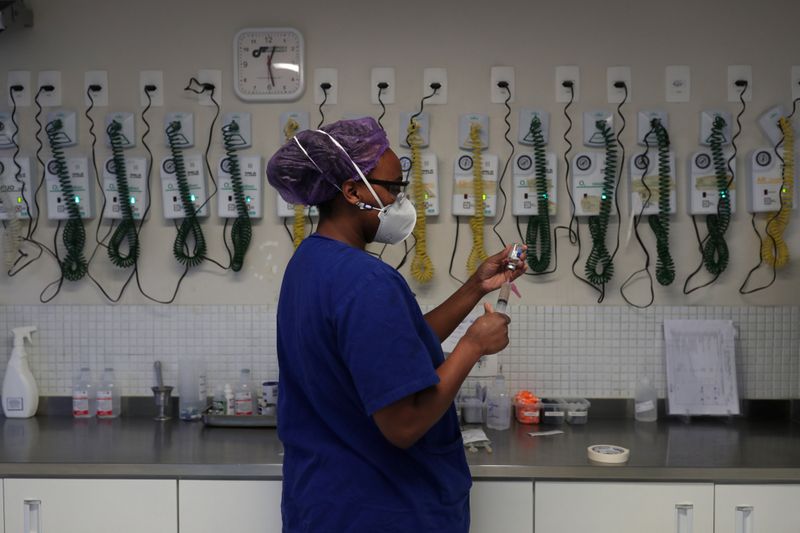By Stephanie Nebehay and John Revill
GENEVA/ZURICH (Reuters) - Coronavirus cases are soaring in several major countries at the same time, with "worrying increases" in Latin America, especially Brazil, the World Health Organization (WHO) said on Monday.
The world recorded more than 183,000 new coronavirus cases on Sunday, the most in a single day since the outbreak started in December, WHO chief Tedros Adhanom Ghebreyesus said.
"Certainly the numbers are increasing because the epidemic is developing in a number of populous countries at the same time and across the whole world," WHO's top emergencies expert, Mike Ryan, told an online briefing.
"Some of that increase may be attributed to increased testing ... And certainly countries like India are testing more. But we do not believe that this is a testing phenomenon."
Global cases surpassed 9 million on Monday, with the United States, China and other hard-hit countries also reporting new outbreaks, according to a Reuters tally.
Ryan said there had been a jump in cases in Chile, Argentina, Colombia, Panama, Bolivia and Guatemala, as well as Brazil, which had passed the 1 million mark - second only to the United States - and reported a record 54,000 cases in the previous 24 hours.
He said some of the jump in Brazil might reflect changes in the reporting system, but added:
"There still are relatively low tests per population, and the positivity rates for testing are still quite high overall. From that perspective, we would say that this trend is not reflective of exhaustive testing, but probably under-estimating the actual number of cases."
1,000 DEATHS A DAY
Latin America's largest country has frequently recorded more than 1,000 deaths a day over the last month.
President Jair Bolsonaro, sometimes called the "Tropical Trump", has been widely criticised for his handling of the crisis. The country still has no permanent health minister after losing two since April, following clashes with the president.
Bolsonaro has shunned social distancing, calling it a job-killing measure more dangerous than the virus itself. He has also promoted two anti-malarial drugs - chloroquine and hydroxychloroquine - as remedies, despite a lack of evidence that they work.
Ryan said he thought there had been "great upticks" in cases in a number of U.S. states.
"I'm not 100 percent sure about the age profile, but I've seen the reports that some of this is amongst younger people. That may reflect the fact that younger people are more mobile and they are getting out and taking advantage of the reductions in restrictions of movement ...
"What is clear is that the increase is not entirely explained through just increased testing."
The WHO also said it was worried about Germany, where the reproduction rate of the virus hit 2.88 on Sunday, well above the maximum level of one transmission per person needed to contain the disease over the longer term.
Tedros said a lack of global leadership and unity in fighting the virus was a bigger threat than the outbreak itself, and that politicisation had made the pandemic worse.

The WHO has been criticised by some member states, especially the United States, which says it was too weak, too slow and too "China-centric" in tackling the disease at the outset.